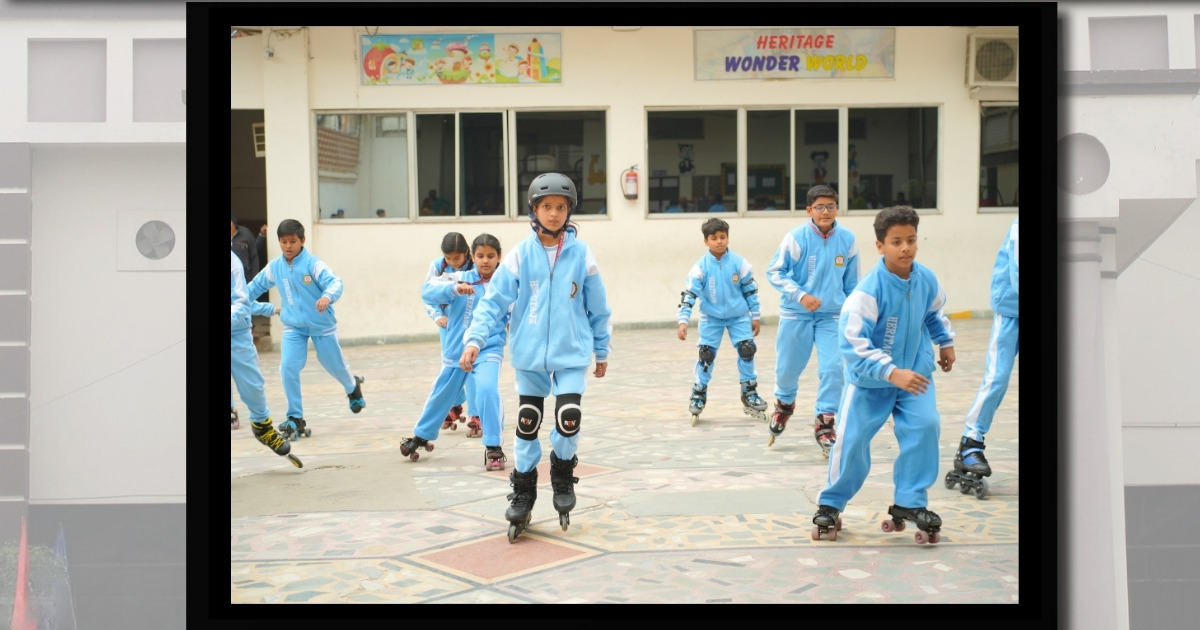
- On August 29, 2025
- By admin
- Tags best English medium school, Best English medium school Aligarh, best English Medium School in Aligarh, English medium school in Aligarh, Heritage School, Holistic development school Aligarh, Modern facilities English school, Quality education Aligarh, Top CBSE School in Aligarh
Rising Concerns of Online Gaming Addiction
Online Gaming
A bold step to safeguard youth India has taken a historic step to address one of the fastest-growing challenges of the digital era—the addiction to online gaming. With nearly half of the country’s 1.4 billion people below 35 years of age, the appeal of mobile and computer games has drawn close to 500 million users. Many of these are adolescents who spend endless hours in front of screens. The consequences are evident—declining academic performance, rising family conflicts, financial strain, and even cases of depression and self-harm.
To address this crisis, the government has passed the Promotion and Regulation of Online Gaming Bill 2025, a comprehensive law that safeguards young players while guiding the booming industry toward safer practices.
The Hidden Costs of Virtual Thrills
Popular games such as PUBG, Free Fire, Call of Duty, BGMI, and Fantasy Cricket have become more than just entertainment—they are alternate realities for millions of players. Teenagers often spend hours chasing victories in virtual worlds, sacrificing real-life responsibilities and relationships.
Excessive gaming disrupts sleep cycles, damages mental health, and weakens social connections. Families are struggling with debts caused by in-app purchases, while extreme cases show youth suffering from addiction, anxiety, and even suicidal tendencies.
The World Health Organisation (WHO) officially recognized “gaming disorder” in 2019, warning that when gaming interferes with daily life, it becomes a serious health risk.
What the New Law Brings
- The Online Gaming Bill 2025 introduces a strict regulatory framework to minimise harmful effects while promoting responsible play:
- Classification of Games: Clear distinction between skill-based and chance-based games.
- Licensing System: Platforms must secure official approval before operation.
- Protection for Minors: Those under 18 will have restrictions on playtime and spending.
- Financial Oversight: Monitoring of in-app purchases to prevent misuse.
- Penalties for Violators: Game developers and promoters breaking the law could face up to 3 years in jail, fines up to ₹1 crore, or both.
- Players Protected: The law targets providers, not regular players.
Balancing Industry Growth and Public Health
The government has clarified that the aim is not to shut down the gaming industry but to regulate harmful practices. Predatory games that encourage addictive behaviours will be restricted, while e-sports and skill-based competitions will be supported as healthier digital alternatives.
As the IT Minister stated, “When industry profits and public welfare collide, the government will always prioritise society’s well-being.”
The Role of Families and Schools
Experts highlight that legislation alone cannot solve the gaming addiction problem. Parents need to monitor screen time, teachers must guide students toward balanced digital habits, and young people themselves should learn that life extends beyond virtual screens.
A Timely and Positive Message
The Online Gaming Bill 2025 is more than just regulation—it is a commitment to building a responsible digital nation. By tackling the hidden dangers of gaming addiction, India is sending a strong message: digital growth must align with mental health, social stability, and the well-being of its future generations.
